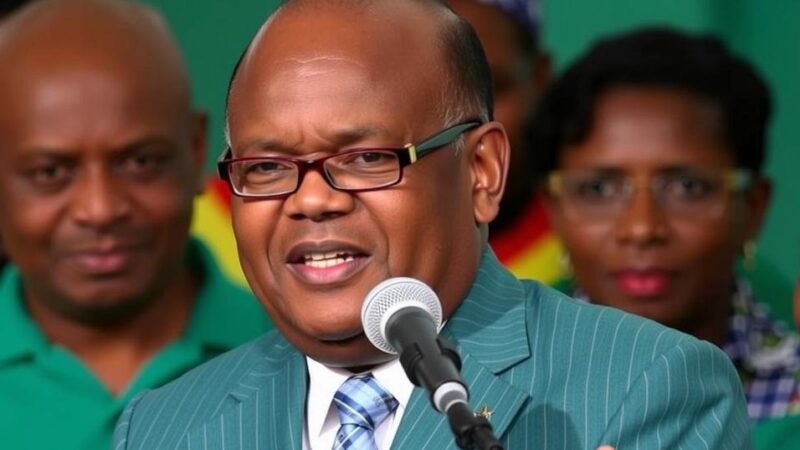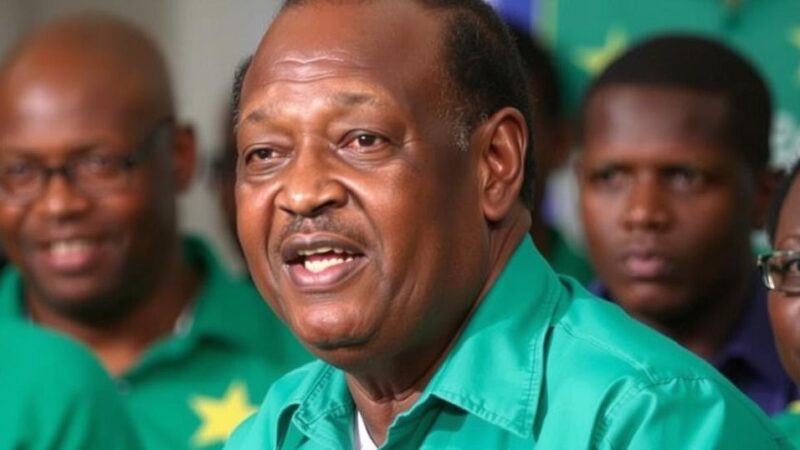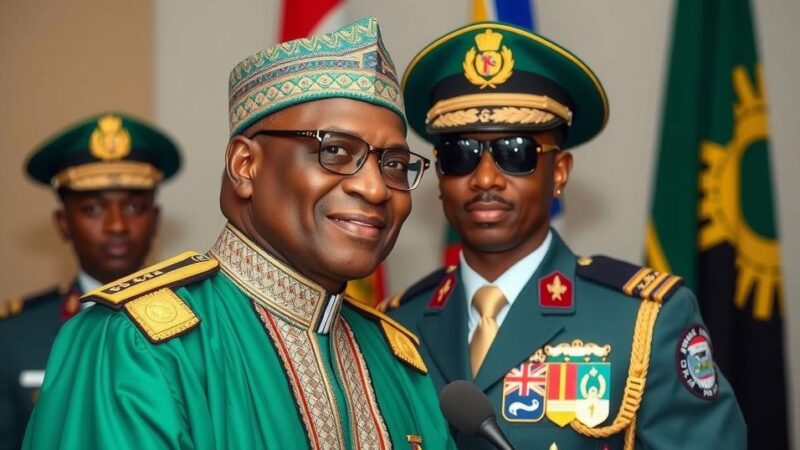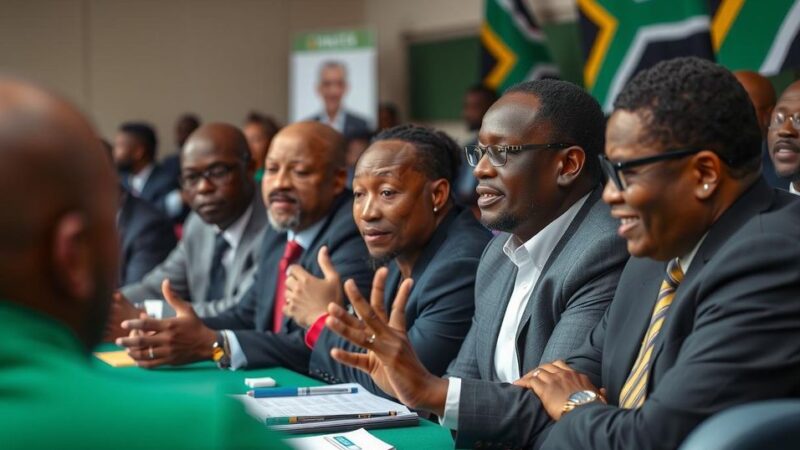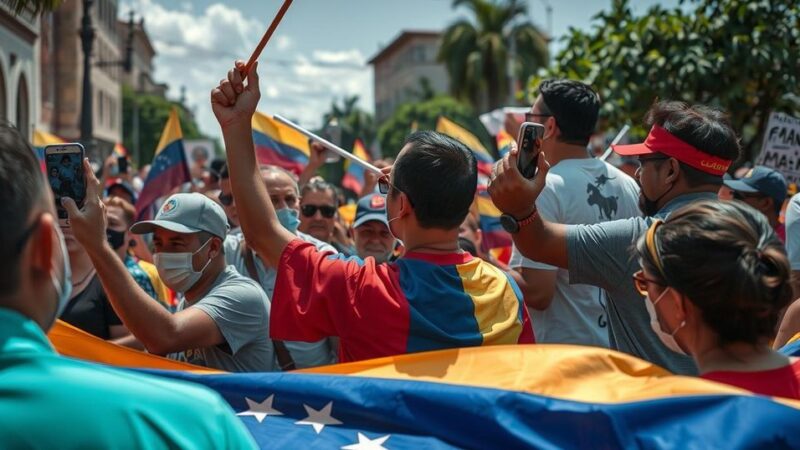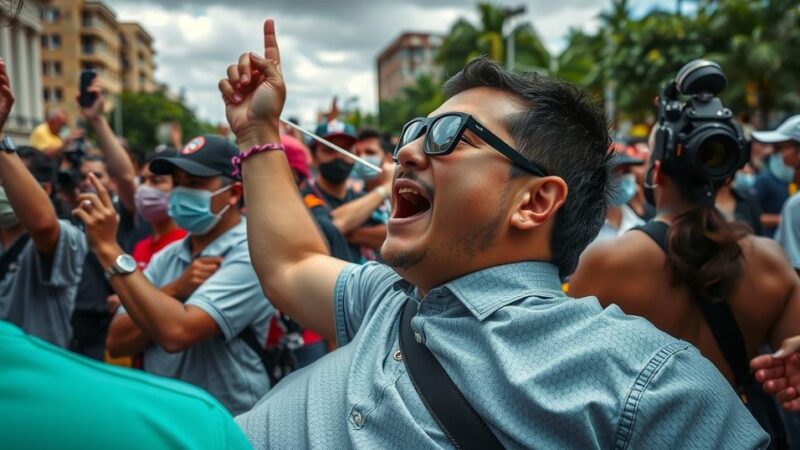The vice-presidential debate between JD Vance and Tim Walz covered key topics such as immigration, international conflict, and abortion rights, exhibiting civil exchanges contrasted with moments of intensity. Vance’s immigration claims led to a muted microphone incident, while both candidates navigated the emotional waters of abortion rights, with significant implications for the upcoming election. The debate was characterized by a courteous tone, showcasing political contrasts and personal reflections on past statements.
In the inaugural and singular vice-presidential debate, JD Vance and Tim Walz engaged in a contentious yet civil exchange characterized by exchanges over their respective presidential candidates, addressing pertinent issues such as the economy, immigration, international relations, and abortion rights. The discourse showcased a notable level of decorum compared to previous encounters this election cycle, albeit sprinkled with intense moments and a particularly memorable incident involving a muted microphone. During the discussion, immigration emerged as a focal point, with Vance, the Republican senator from Ohio, persistently redirecting dialogue toward the concerns surrounding the U.S. southern border. In contrast, Walz, the Democratic governor of Minnesota, argued that former President Trump obstructed bipartisan immigration initiatives aimed at implementing significant policy changes. The atmosphere turned particularly charged when Vance faced scrutiny for his previous claims about illegal immigrants in Springfield, Ohio, which led to a CBS moderator muting his mic after he repeatedly interrupted corrections regarding the legality of Haitian migrants in the area. The backdrop of escalating international tensions, particularly due to recent missile strikes by Iran on Israel, framed the debate. Although both candidates affirmed their commitment to Israel, neither fully endorsed whether they would back preemptive military measures. Vance leaned on Trump’s narrative of unprecedented peace during the latter’s administration, while Walz hesitantly echoed the administration’s stance. Moreover, the issue of abortion rights attracted significant attention, providing a heated exchange indicative of its importance to voters in the upcoming election. Walz highlighted the tragic narratives of women affected by restrictive legislation, while Vance acknowledged a shift in his view after recognizing the majority of Ohioans favored access to abortion. As the debate progressed, personal missteps were addressed. Walz admitted to an error regarding his claims related to the Tiananmen Square events, expressing, “I’m a knucklehead at times.” Likewise, Vance reflected on his past criticism of Trump, admitting, “I was wrong about Donald Trump” in response to inquiries about his previous remarks related to the former president. Throughout the evening, Vance and Walz contrasted starkly with Kamala Harris and Donald Trump’s prior encounters, as civility and politeness underscored their interactions. They began with a handshake and displayed mutual respect, even despite moments of tension regarding immigration and abortion discussions. Vance defended Trump’s actions during the Capitol unrest of January 6, asserting, “the former president had asked demonstrators…to protest peacefully,” while Walz countered that they were drastically divergent on issues of election integrity. The debate reflected a complex but cordial political landscape as both candidates subtly criticized top ticket issues while maintaining decorum and focusing largely on policy over personal attacks.
The vice-presidential debate represents a canvas upon which the candidates, JD Vance and Tim Walz, painted their perspectives on key national issues as they vie for a crucial role in the electoral process, influencing voters’ opinions. This debate serves as an opportunity for candidates to convey their platforms and respond substantively to the prevailing concerns of the electorate, particularly in a polarized political climate. The backdrop of the debate was marked by pressing global events and domestic trials, particularly the controversy surrounding abortion rights and immigration policies, both pivotal themes within the contemporary American political discourse.
Overall, the vice-presidential debate between JD Vance and Tim Walz highlighted significant political divides as well as civil exchanges that set it apart from earlier debates in the election cycle. Immigration, international conflict, and abortion rights featured prominently, revealing contrasting ideologies as the candidates navigated these contentious issues. The debate not only showcased their rhetorical skills but also illustrated the broader political battleground as the 2024 presidential election approaches.
Original Source: www.bbc.com


